Future Cities
Reimagining the work environment - out with the old and in with the somewhere inbetween
 It’s not only our normal routines of working, study, shopping or recreation that has changed with the Coronavirus pandemic, it’s also changed how we use our spaces. We are staying further apart, schools are starting to reopen but in staggered stages, businesses are running week about shifts of people working at home and at the office, and now there is a discussion about staggered start times to limit the number of commuters on public transport. Given the amount of time we have spent in our homes recently, even the way we look at that space is changing.
It’s not only our normal routines of working, study, shopping or recreation that has changed with the Coronavirus pandemic, it’s also changed how we use our spaces. We are staying further apart, schools are starting to reopen but in staggered stages, businesses are running week about shifts of people working at home and at the office, and now there is a discussion about staggered start times to limit the number of commuters on public transport. Given the amount of time we have spent in our homes recently, even the way we look at that space is changing.
Aviation Teen Start-Up inspires young innovators
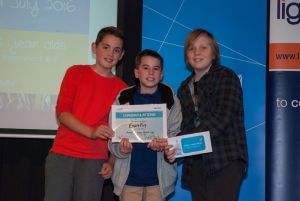 Yesterday the winners of Aviation Teen Start-Up were announced. Winning first place was Team Easy-Fly. Their project focussed on developing an App to improve the customer experience from check-in to boarding.
Yesterday the winners of Aviation Teen Start-Up were announced. Winning first place was Team Easy-Fly. Their project focussed on developing an App to improve the customer experience from check-in to boarding.
Twenty-two teams participated, made up of students aged between 10 and 18 years from 26 different schools in Canberra. With a focus on aerospace innovation, Aviation Teen Start-Up encourages students to invent, explore and experiment and let their dreams take flight! Projects ranged from using the K9 unit to detect disease, baggage tracking systems, planes powered by renewables; to improving space food and using drones to improve distribution. The students pitched their ideas to a panel of judges from the Canberra Airport, Microsoft Australia and local entrepreneurs on the Thursday afternoon.
Aviation Teen Start-Up to inspire young innovators
 Aviation Teen Start-Up is an innovation camp for 10 to 18 year olds, run during the July school holidays from the 12th to 14th July at the Canberra Airport’s Brindabella Conference Centre. With a focus on aerospace innovation, it encourages students to invent, explore and experiment and let their dreams take flight!
Aviation Teen Start-Up is an innovation camp for 10 to 18 year olds, run during the July school holidays from the 12th to 14th July at the Canberra Airport’s Brindabella Conference Centre. With a focus on aerospace innovation, it encourages students to invent, explore and experiment and let their dreams take flight!
Over three fun-filled days, students are taken through the innovation development process from idea to execution. Students work together in teams to come up with an idea for a product or service that they believe provides a solution to a problem their generation will face in the future. The event concludes with the students pitching their concepts to a panel of judges.
Future Cities in good hands as winners announced at Teen Start-Up weekend
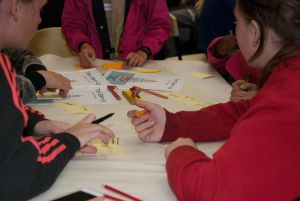 Yesterday the winners of Teen Start-Up: ‘Future Cities’ were announced. Winning first place was Team PowAir with a project focussed on renewable energy in the aviation industry. In Second Place was Team PowerG Calculator that pitched the idea for an online calculator that allows homeowners to compare energy providers and relate their offering to an investment in solar. In third place was Team Esuriit Designs pitching a points-based membership network of community gardens to encourage urban farming.
Yesterday the winners of Teen Start-Up: ‘Future Cities’ were announced. Winning first place was Team PowAir with a project focussed on renewable energy in the aviation industry. In Second Place was Team PowerG Calculator that pitched the idea for an online calculator that allows homeowners to compare energy providers and relate their offering to an investment in solar. In third place was Team Esuriit Designs pitching a points-based membership network of community gardens to encourage urban farming.
Eleven teams participated, made up of students aged between 10 and 15 years from 14 different schools in Canberra. The students focussed on problems their generation would face in relation to the topic ‘future cities’, pitching their ideas to a panel of judges on the Sunday afternoon. Projects tackled issues relating to public transport, waste management, jobs and economic growth, food security, infrastructure, data, information access and air pollution.
Entrepreneurship weekend for Teens is back on 4th and 5th June 2016
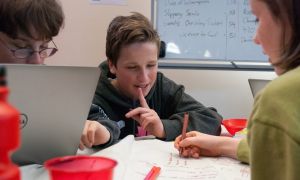 On the weekend of the 4th and 5th June 2016, Teen Start-up will once again introduce Canberra’s teens and tweens to the entrepreneurship process.
On the weekend of the 4th and 5th June 2016, Teen Start-up will once again introduce Canberra’s teens and tweens to the entrepreneurship process.
School students (10-18 year olds) from across Canberra will form teams, work together to come up with an idea for a business and then pitch their concept to a panel of judges.
The theme for this Teen Start-Up Challenge is “Future Cities”.
Teams will be looking at issues that will affect cities such as energy, transport, housing, security of water and food, liveability, social inclusion, smart cities, climate change, health and wellness and much more.
Which is riskier: job or entrepreneurship?
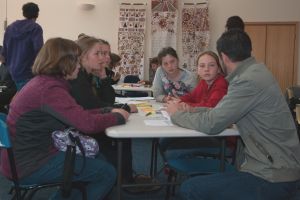 In June my business will be sponsoring the prize for the winning team at Teen Start-Up: Future Cities, an innovation camp for teens and tweens between the ages of 10 and 18 years.
In June my business will be sponsoring the prize for the winning team at Teen Start-Up: Future Cities, an innovation camp for teens and tweens between the ages of 10 and 18 years.
I firmly believe that every child needs the financial literacy and business skills that programs like Teen Start-Up teach. In the past, employment might have been considered secure and entrepreneurship risky, but the new reality is that there will be no such thing as a job for life.
You just have to open the newspaper to read about public service job cuts, companies that are taking jobs offshore, wage negotiations that have stalled and the range of jobs and skills that are being made redundant by technological and market changes. By encouraging children to be entrepreneurial we are also fostering their independence at a number of levels.
12 speakers discuss urban innovation as part of the Festival of Ambitious Ideas on 12th May
 ‘Future Cities’ is the theme for the Festival of Ambitious Ideas, a showcase of Canberra’s innovators, game-changers and status quo challengers to be held on the 12th May.
‘Future Cities’ is the theme for the Festival of Ambitious Ideas, a showcase of Canberra’s innovators, game-changers and status quo challengers to be held on the 12th May.
Twelve speakers from a range of industries will share their experiences and perspectives on the challenges, as well as the opportunities and innovations that will impact on people’s everyday lives in the cities of the future.
Food security and the vexed nature of water allocation in Australia
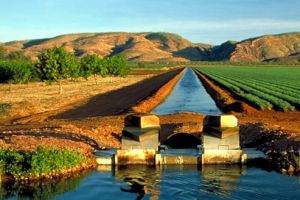 Public investment and political enthusiasm for food and fibre production is at an all-time high but there are signs of policy failure that threaten water and food security in this country.
Public investment and political enthusiasm for food and fibre production is at an all-time high but there are signs of policy failure that threaten water and food security in this country.
Water allocation is increasingly contentious as national and State policies fall out of step with primary producers and agriculturalists.
Nationally, there are white papers in agricultural competitiveness, northern Australia development and initiatives which are driving very large fiscal outlays for investment to facilitate food and fibre production.
At State level, water and agricultural policies are undergoing active renewal and regulations are under reform.

